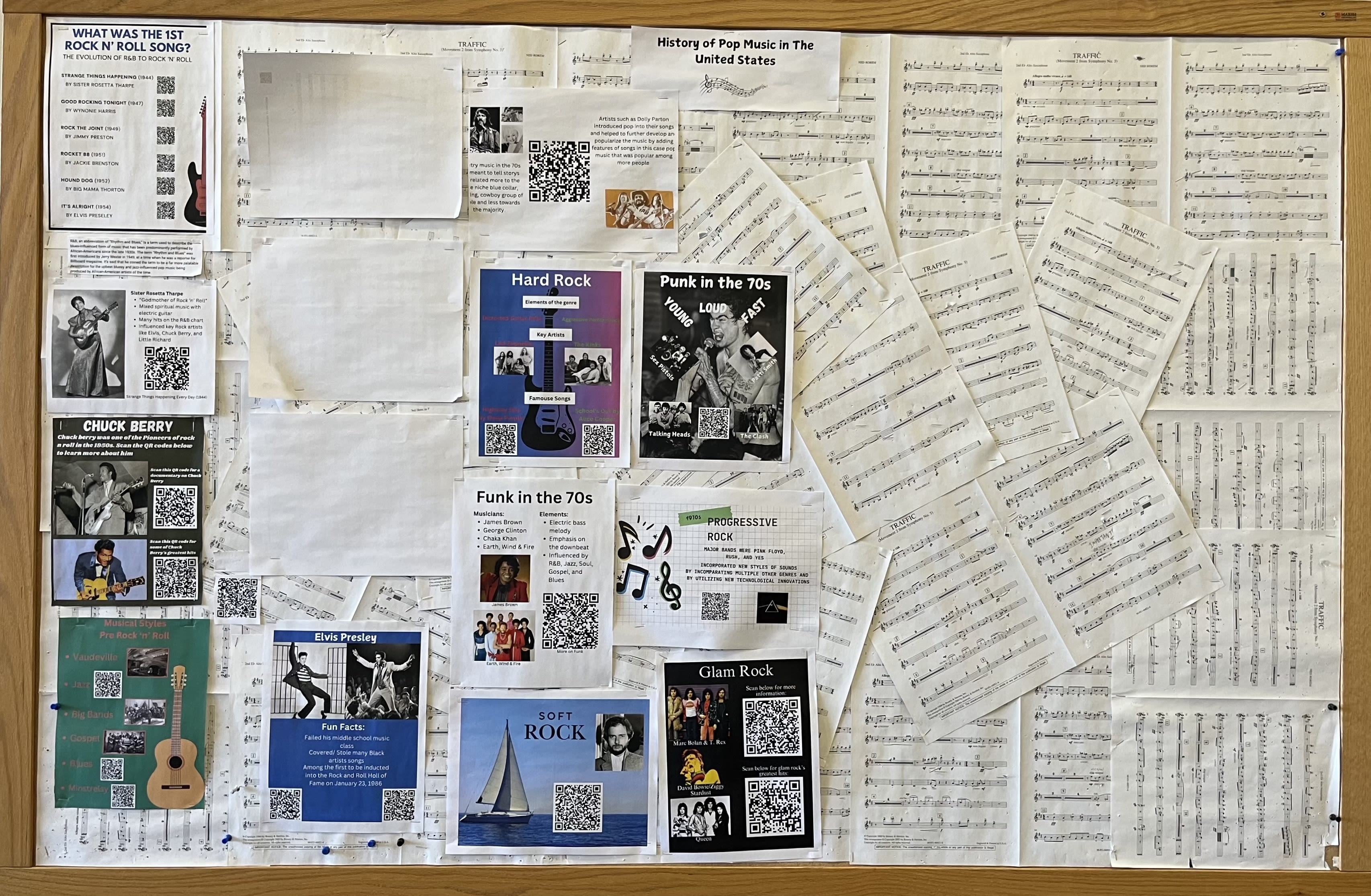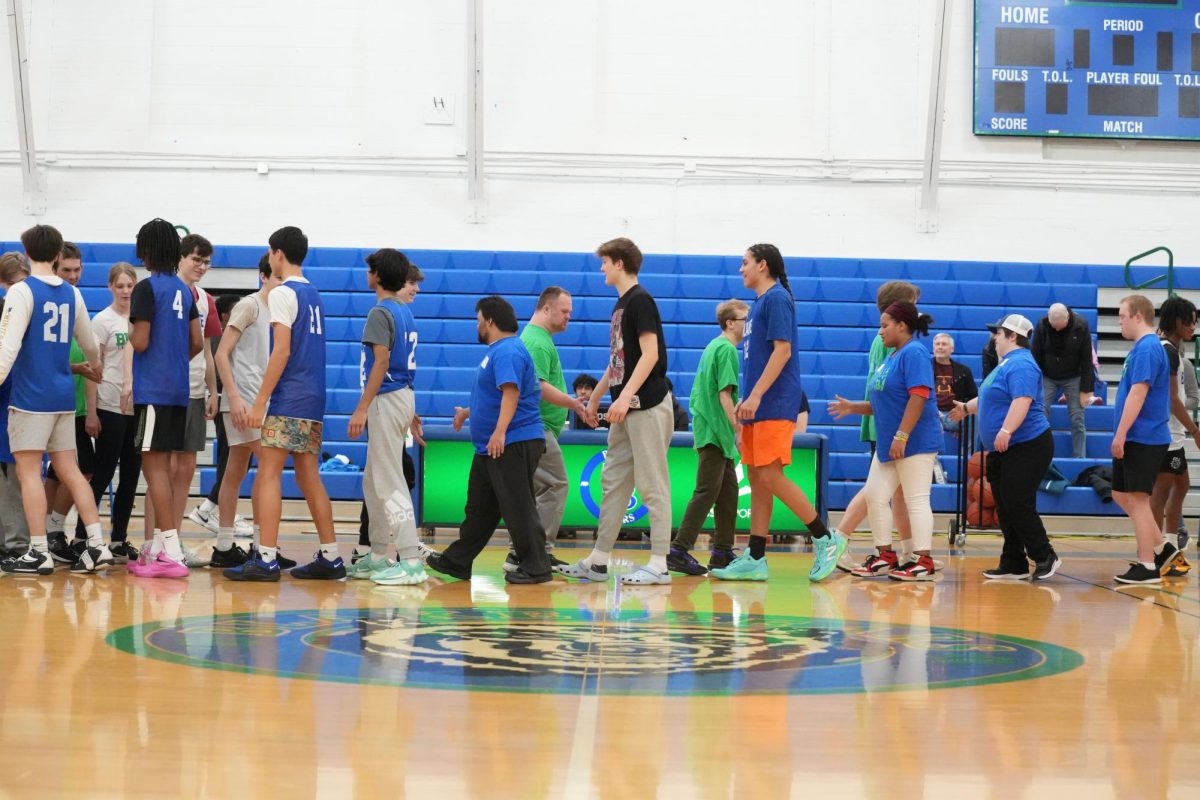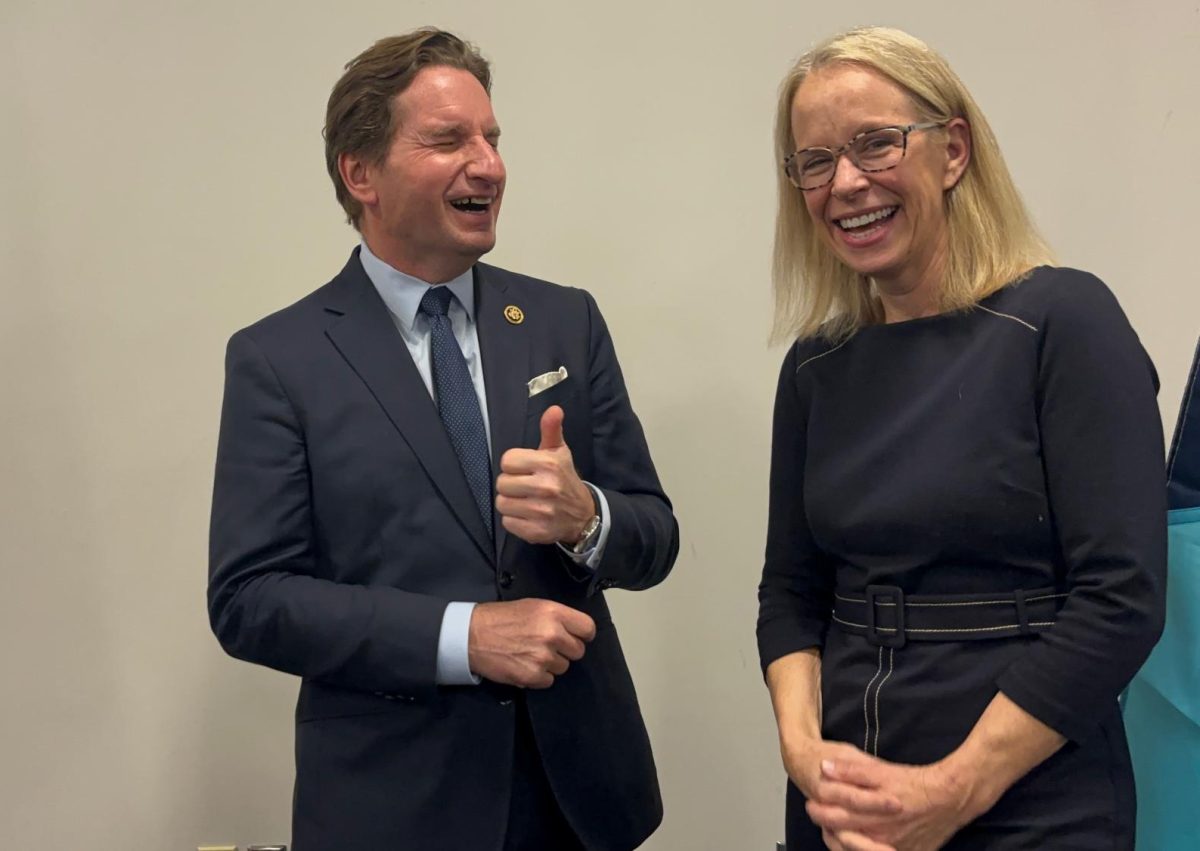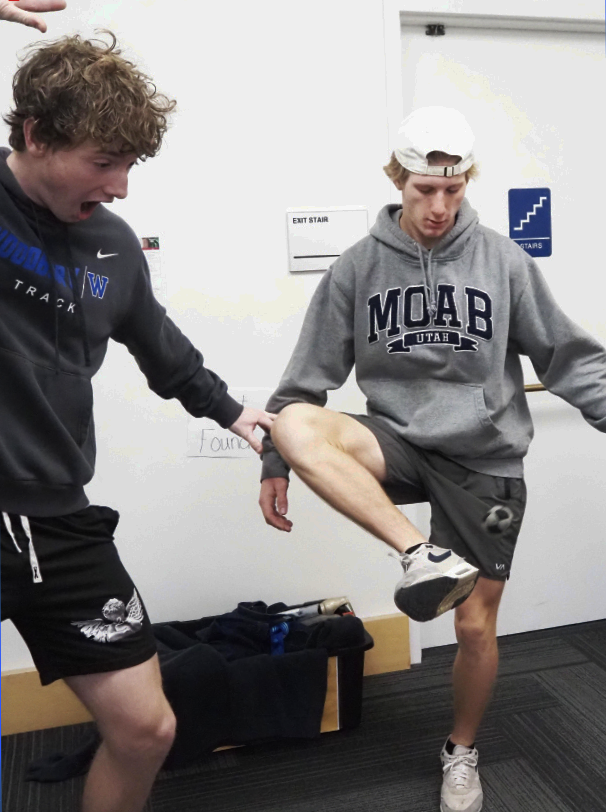Elective Opportunities for New School Year
Learn all about unique class options!

Are you currently debating what electives to take in future years? As students work away in the second semester, many are thinking about what classes they may take during their next few years in high school. With the wide variety of electives the Upper School offers in all departments, it can be daunting when planning classes to take years ahead. To combat this, here is a unique look at four elective options from the arts, sciences, social studies, modern and classical languages, and mathematics.
History of Pop Music
The History of Popular Music in the United States is a fall semester course taught by Brian Lukkason. Offered biannually, Pop Music provides a look at the change in music culture that occurred throughout the 20th and 21st centuries due to aspects of social, political, and economic shifts. Enrollment in any music is not required as this course is a way for students to be introduced to the world of music. The main objective of the course is “studying and understanding the influence of history on music and music on history and how there’s so much overlap between them.” Throughout the semester students will explore different decades of popular music in America starting “from about 1950 up through the present” according to Lukkason. Pop music will be taught next during the 2026-27 school year.
Game Theory:
Looking for a fun way to apply mathematics to games? Take Game Theory! This semester course takes game strategy to the next level. Math teacher Daniel Willms has taught Game Theory many times in past years and states that there are “two major ways” Game Theory is approached. One is "looking at games of chance through a lens of probability and expected value” while the other is “looking at more games of strategy through a classic game theory approach using matrices.” The class explores lots of games according to Willms, who said that “basically every class is a new game.” Following the game, students will work through math, usually connected to the game played at the start of class.
Morality in the Modern World:
Taught during first-semester, Morality in the Modern World Issues helps shape the very ideals that make you who you are. The course examines how the morals and values of societies are shaped by factors such as faith and culture. It is a discussion heavy course, so be ready to talk regularly with your peers in class! Nova Stay ‘26 states that they would “open the class with a current event,” on a question that challenged one’s morals. Things like “how much a person should give based on how much they make” and “what could get in the way of a utilitarian” making the most logical choices are specific things the class discusses. Other things such as “virtue ethics” and “care ethics” are explored in relation to real world scenarios such as “the ethics of sports betting.” Students end the class with a final research project about “one big topic that surrounds the Blake School,” which gives students the chance to apply what they learned during the semester.
Astronomy
Have you always been interested in space? Wanted to look through a big telescope at the universe we all live in? Advanced Science: Astronomy may be the perfect course for you! Taught by Jeff Trinh, this second-semester course covers constellations, why things happen in space, and big ideas such as the fate of the universe. Rebekah Johnson stated that in class “hands-on labs and sky-watching nights bring what you learn to life. If you’ve ever looked up and wondered what’s out there, this course is for you.”
A board outside the band and orchestra room displays all the music that the class has studied.
A board outside the band and orchestra room displays all the music that the class has studied.
Dice are often used in game theory. Willms explains, “Dice are used as probability models for analysis of dice based games.”
Dice are often used in game theory. Willms explains, “Dice are used as probability models for analysis of dice based games.”
“Ethical Choices” is one of the books studied in Morality in the Modern World Issues.
“Ethical Choices” is one of the books studied in Morality in the Modern World Issues.
This panel is of “the scientist who discovered dark matter and the galaxy that helped him discover it,” according to physics teacher Maggie Molter.
This panel is of “the scientist who discovered dark matter and the galaxy that helped him discover it,” according to physics teacher Maggie Molter.













